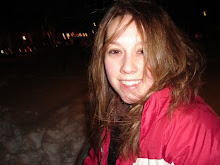
During our class discussion on Tuesday with the East meets West group, we watched a great short film on an Iraqi living in America and allowing everyday people to ask him questions called Talk to an Iraqi-This American Life. I thought this was a great way for Americans to get first hand knowledge from someone living the life, but what I realized is that people do not take advantage of this. Often, the Americans would tell the Iraqi what his life is like rather than letting him tell his own story. Even the soldiers serving in Iraq seem to have a tainted view of what life is like. What upset me was the one solider who was excited to go to Iraq. It bothered me because he was excited to go to war and it doesn't seem like anyone should be excited to go to war. I thought it was funny and interesting the man who asked if there were any fat people in Iraq. In someways it seems like it shows how little people really know about life outside America. But I also think it shows the man trying to make a personal connection with something foreign that he can relate to in a personal way. I was very impressed with the eleven year old girl, who wanted to apologize for our (America's) actions toward Iraq. I felt she was wise way beyond her years and the maturity she showed to understand the reasoning of adults and to see that it possibly can be flawed. I think this was a great idea, but I wish people would actually listen to him and allow him to speak his story because only then could they really learn something.








